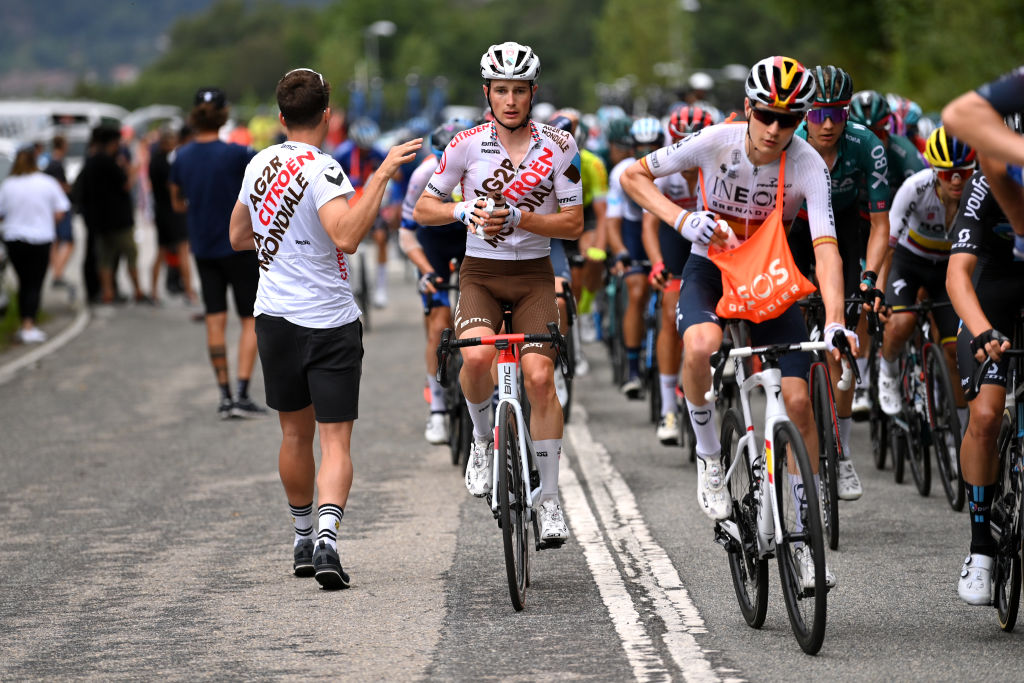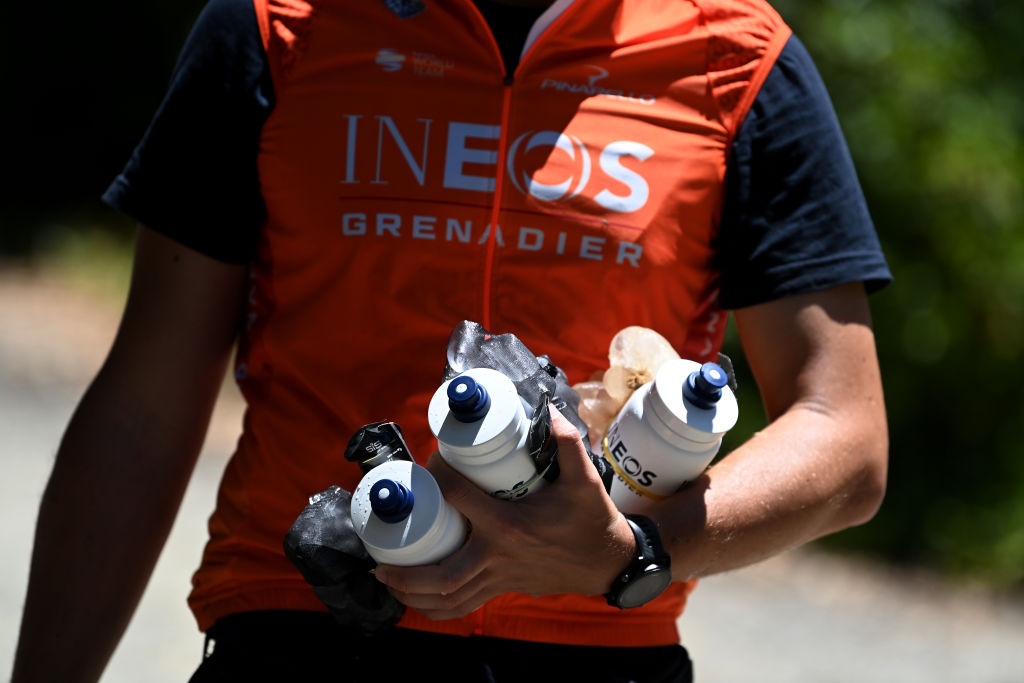Philippa York on the evolution of nutrition in pro cycling
'Today's nutritional complexities are a world away from the days of steak for breakfast'

Nutrition? This whole concept was almost an affront to the French-speaking peloton of the 1980s. The established idea of pre-race food for everyone was steak and rice, finished barely three hours before the start.
If that wasn't conducive enough to a gentle few opening kilometres then the packing of jersey pockets with mini sandwiches, creamy rice cake and slices of apple tart certainly held you back. I never heard the word nutrition uttered in relation to any kind of performance and calories were only ever mentioned if someone turned up looking a bit porky.
Without question, the hotel food was always of worse quality than I ate at home, but there was usually lots of it and that seemed to make it OK somehow. If you didn't work out for yourself how much protein, carbohydrate and fats you were consuming then nobody else was, because all that mattered was how you performed.
Thinking back, it probably took another decade before having cereals in the morning and protein drinks after finishes became acceptable.
In-race fuelling remained largely a hit-and miss-affair, though, as nobody seemed to have calculated precisely enough what was happening as the hours went past – so you ate your little sandwiches in the beginning, the rice cakes in the middle and sugary bars as you raced into the final.
In stage races, the notion was that you would be eating not only for that day but also for the ones coming up, but nothing was measured. Things did get slightly better when energy drinks and gels made their appearance in the 1990s.
However, there were a few who would try going without solid food altogether. You might get away with that for a day, but it disrupted the bowels if you persisted with the idea beyond a short period.
The latest race content, interviews, features, reviews and expert buying guides, direct to your inbox!

By then, some teams were experimenting with a chef who prepared the food instead of relying on hotel fare. However, that was only for the Grand Tours or maybe the spring Classics – it certainly wasn't the case all season long.
I spent quite a lot of time learning what I needed for my diet, but it wasn't something I shared with many others because that knowledge was as guarded as any training schedule. It took many months to figure out how to adjust my nutritional requirements to suit the workload I was recovering from or planning for the next days and weeks.
I regarded it as necessary to my performance, whether physical or mental, as it became part of the process of knowing that everything had been done properly. The downside of that could be eating rubbish – or those things deemed to be so – as comfort, or just as a break from the restrictions of analysing everything down to the nth degree and still getting a battering in the race.
Of course, nowadays the advantage of teams having a bigger budget is that they have a nutritionist, dietician, official nutrition partner and a full-time chef. That's in addition to the collective knowledge available online so you don't have to trawl through books, experiment with levels of protein intake, or calculate how many calories you're likely to burn on a mountain stage that has 4,000 metres of elevation.
It's a fantastic situation to know how you fuel for an effort like that, when to eat certain things, and when it's time for water or the finish bottle with your optimum caffeine dose. I love the idea of how the plans are also personalised to the needs of each rider. There's no more 'everyone gets the same' because we aren't all identical.
The little climbers getting dragged along on their limit during the flat stages have very different requirements compared to the domestiques looking after them, and then there are the riders who do battle for the breakaways day after day. How do you sort their preparation and recovery so that they aren't completely worn out by those efforts?
Today's nutritional complexities are a world away from the days of steak for breakfast, and the consequence is that the level of competition steadily increases as everyone discovers what works for them before, during, and after the event.
Philippa York is a long-standing Cyclingnews contributor, providing expert racing analysis. As one of the early British racers to take the plunge and relocate to France with the famed ACBB club in the 1980's, she was the inspiration for a generation of racing cyclists – and cycling fans – from the UK.
The Glaswegian gained a contract with Peugeot in 1980, making her Tour de France debut in 1983 and taking a solo win in Bagnères-de-Luchon in the Pyrenees, the mountain range which would prove a happy hunting ground throughout her Tour career.
The following year's race would prove to be one of her finest seasons, becoming the first rider from the UK to win the polka dot jersey at the Tour, whilst also becoming Britain's highest-ever placed GC finisher with 4th spot.
She finished runner-up at the Vuelta a España in 1985 and 1986, to Pedro Delgado and Álvaro Pino respectively, and at the Giro d'Italia in 1987. Stage race victories include the Volta a Catalunya (1985), Tour of Britain (1989) and Critérium du Dauphiné Libéré (1990). York retired from professional cycling as reigning British champion following the collapse of Le Groupement in 1995.

